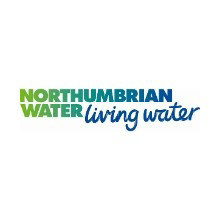
Northumbrian Water case study: Mobile workforce
Optimising the operations of staff on the move allows for a more sustainable business.
Overview
Field Force Automation solution helps Northumbrian Water drive culture change, improve productivity, and enhance customer service.
Being in a regulated industry, Northumbrian Water had tough efficiency targets to hit. David Garrett knew the company’s 1,100 field engineers could be the driving force. So he wanted to find a company with the right mobile technology and first-hand experience of taking big teams through change.
He found both with BT. Now, BT’s Field Force Automation puts assignments straight into the right engineers’ hands fast, wherever they are. Paperwork’s much reduced. Wasted journeys and fuel costs are too.
And with more time available for projects, more gets done. That’s a satisfying feeling for customers, the engineers and David, too.

The challenge
Northumbrian Water serves a population of 2.6 million people in northeast England and 1.7 million in the southeast (where it trades as Essex & Suffolk Water). In aiming to deliver value to all stakeholders by being a leading performer in its industry, the company has invested heavily to build a sustainable future for regional water and sewerage services, whilst maintaining low costs to its customers. It has over 1,100 field operatives and a fleet of around 1,000 vehicles.
Efficient work allocation and scheduling is a key driver towards lower utility costs. Field Force Automation can improve information flows to and from their mobile workforces, substantially improving customer service and productivity. Brian Olley, Work Management Programme Manager at Northumbrian Water, comments: “Our industry is heavily regulated and year-on-year efficiency improvement targets are demanded of water companies. Whilst Northumbrian Water was continuing to deliver better returns, our rate of progress was beginning to fall behind some of our competitors. A step change was required, and Field Force Automation was the key.”
Northumbrian Water has had a long association with BT. One of the pioneers of Field Force Automation, BT has been using such solutions since 1994 and is now on its third iteration of support systems. The learning from its own journey has been considerable, and it is ideally placed to pass this on to its customers. BT was invited to share its experience with Northumbrian Water and captured the senior team’s imagination. Field Force Automation became a flagship transformation project for the company.
Northumbrian Water issued a request for information (RFI), receiving responses from ten potential Field Force Automation solution vendors. BT was selected from a shortlist of three companies as Northumbrian Water’s implementation partner, because it tabled a compelling proposition – a blend of technology and consultancy – that would cost-effectively leapfrog the company to the forefront of industry best practice. Brian Olley says: “Field Force Automation is fundamentally about people, with the technology just an enabler of process change. BT understood our business and cultural issues as it is very similar to Northumbrian Water in having a loyal, long-serving and highly mobile workforce.”
The solution
The first stage was to be a six-month pilot. This would provide the evidence to compile a business case and investment proposal for full-scale deployment. The pilot involved around 80 vehicles and 100 people including some of its most experienced field engineers and union representatives.
To initiate the trial and ensure accurate messages, BT helped plan and participated in a series of roadshows to communicate the objectives to staff. After that, vehicles were fitted with GPS tracking devices and engineers were provided with handheld mobile devices to receive and send information about jobs.
To smooth the transition, the BT implementation team designed the information screens on the mobile devices to look as much like the previous paper forms as possible. Input was simplified, with around 70 per cent of the data input achieved using options from drop-down menus, rather than manual keying.
To support the rollout, BT delivered end-user training for all people in the pilot and provided a helpdesk to support individual users for the Field Force Automation technology and the business applications, together with a repair and replacement service for mobile devices.
Following the success of the pilot, Northumbrian Water approved the implementation of the solution to all operational teams – extending the value of the contract with BT to £12million.
The result
The Field Force Automation solution lets dispatchers see each engineer’s job status and vehicle location instantaneously on a single web page. During the pilot, productivity increased by some 10%, from optimal job allocation and a reduction in ineffective time through shorter trips aided by satellite navigation. Together with a dramatic reduction in unnecessary journeys, this meant that driven mileage was reduced by about 20%, reducing the company’s carbon footprint and helping it to be a more sustainable business.
Another factor is that the Field Force Automation solution enables single-entry job information on the mobile devices, substantially reducing paperwork and saving each engineer around 40 minutes each day. Information is now shared between departments, and the system automatically compiles a timesheet of work completed, improving accuracy and eliminating another laborious manual task.
The solution also deals with other important HR-related tasks such as proof of attendance, timesheet generation and submission, end-of-day duty of care obligations, and compiling accurate data to ensure compliance with the European Working Time Directive. Vehicle monitoring has enabled improved response times to emergencies and will also help with the rapid recovery of stolen vehicles.
Following the pilot's success, Northumbrian Water approved the implementation of the solution to all operational teams – extending the value of the contract with BT to £12m over five years. Full-scale rollout to around 850 mobile operatives and 760 vehicles across its three operational regions followed over the next year.
Customers are set to benefit too. Northumbrian Water was one of the first water companies to offer two-hour time slots for engineer appointments, and the improved scheduling process means this promise is now kept more often. David Garrett says: “We were conservative in our calculations of the expected benefits, and despite this, we anticipate a return on investment within 12 months.”
More recently, the original contract was extended to cover a seven-year term and now includes plans to deploy a more agile range of field terminals, including new PDAs, tablets and iOS devices.
Field Force Automation continues to be a core element in the company’s technology roadmap. So much so that BT was recently invited to once again present to the Northumbrian Water senior team, this time focusing on potential enhancements to the current Field Force Automation solution, such as the integration of planning and scheduling to allow for the automated allocation of work to engineers. Work is now ongoing to plan the next phase of enhancements to leverage even greater benefits.
Brian Olley sums up: “It was clear from the outset that Field Force Automation was not an end in itself but an enabler for cultural and business change within Northumbrian Water. It is already apparent that the combination of technology, process rationalisation, and the greater visibility of jobs and the fleet are remarkably impacting our efficiency and effectiveness. BT is assisting us greatly in this transition.”



